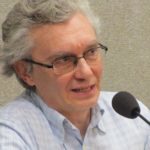ISLAMIC CIVILIZATION AND ITS RELATIONSHIP WITH OTHER CIVILIZATIONS الحضارة الإسلامية وعلاقتها بحضارات أخرى
About Course
Free online course, aimed primarily at Muslim religious personnel, especially those who have attended PriMED project training courses. The course is proposed within the project PriMED - Prevention and Interaction in the Mediterranean Space, funded by the Ministry of University and Research. Misunderstandings, prejudices and misinterpretations in communication and coexistence can arise between people from different cultural, linguistic and religious backgrounds. These problems are based on gaps in anthropological knowledge, superficial experiences, and hasty conclusions. A different approach can uncover common aspects that can be of help to all.Description
Relations and exchanges have characterised the history of every civilization for centuries. No civilization can be considered as isolated, and the ways in which it has developed and continues to change do not only come from within. Especially Christianity and Islam, as universal religions spread all over the earth, have always mediated with peoples of different cultures and languages. Today, in particular, each religion has to face the challenges of scientific and technological modernity, which through ‘globalization’ has reached every corner of the world. In some respects, these are challenges shared by traditional faiths in the face of great and rapid change, but each of them has its own particularly problematic areas that call for reinterpretation on the basis of new knowledge and new questions. Intercultural and interreligious dialogue can help believers of different faiths to get to know each other and work together for the benefit of the whole human race.
What Will I Learn?
- If properly conceived and managed, questions about 'others' also become self-reflection and open up otherwise unimaginable horizons of knowledge and action.
Topics for this course
Islamic Civilization and Its Relationship with Other Civilizations
About the instructor
Paolo Branca
Instructor
Associate Professor of Arabic Language and Literature at the Catholic University of Milan
Paolo Branca graduated in Arabic Language and Literature from the Faculty of Oriental Languages at the Ca' Foscari University of Venice in March 1982, with a thesis on "Aspects of Muslim Modernism in the 1950s in a work by Khalid Muhammad Khalid", which he wrote in Cairo in the autumn of 1981. In 1984, he received a scholarship from the Egyptian government, through which he continued his research in Cairo on contemporary Arab thought, also interviewing Muhammad Ahmad Khalaf Allah, a pioneer of modern Koranic exegesis. He graduated and completed his studies in Arabic at the Institute for the Middle and Far East (IsMEO) in Milan, where he later taught. Since 1989 he has been a researcher in Islamics at the Catholic University of Milan. He has taught Arabic Language and Arabic Literature since 1994 in various universities, including Turin, Pavia, the Istituto Superiore di Scienze Religiose in Milan and the Catholic University of Milan, where he has been teaching Arabic Language (later Arabic Language and Literature) since 1998. He has been a speaker at numerous conferences and study seminars at various institutions including: Pontificia Universitas Urbaniana, Institut du Monde Arabe - Paris, Accademia della Guardia di Finanza - Bergamo, Centro Alti Studi per la Difesa - Rome, Université de Lausanne, University of Pisa, University of Florence, University of 'Ain Shams - Cairo (Egypt). His research focuses on the classic themes of Islamology: the relationship between Islam and the modern world, especially with regard to Muslim fundamentalism and reformism. He is a member of the Scientific Committee of Oasis[1]; of SeSaMo (Society for Middle East Studies) of which he was a founding member and is president; and of the Committee for Italian Islam, established by the Ministry of the Interior.
1 Courses
0 students
